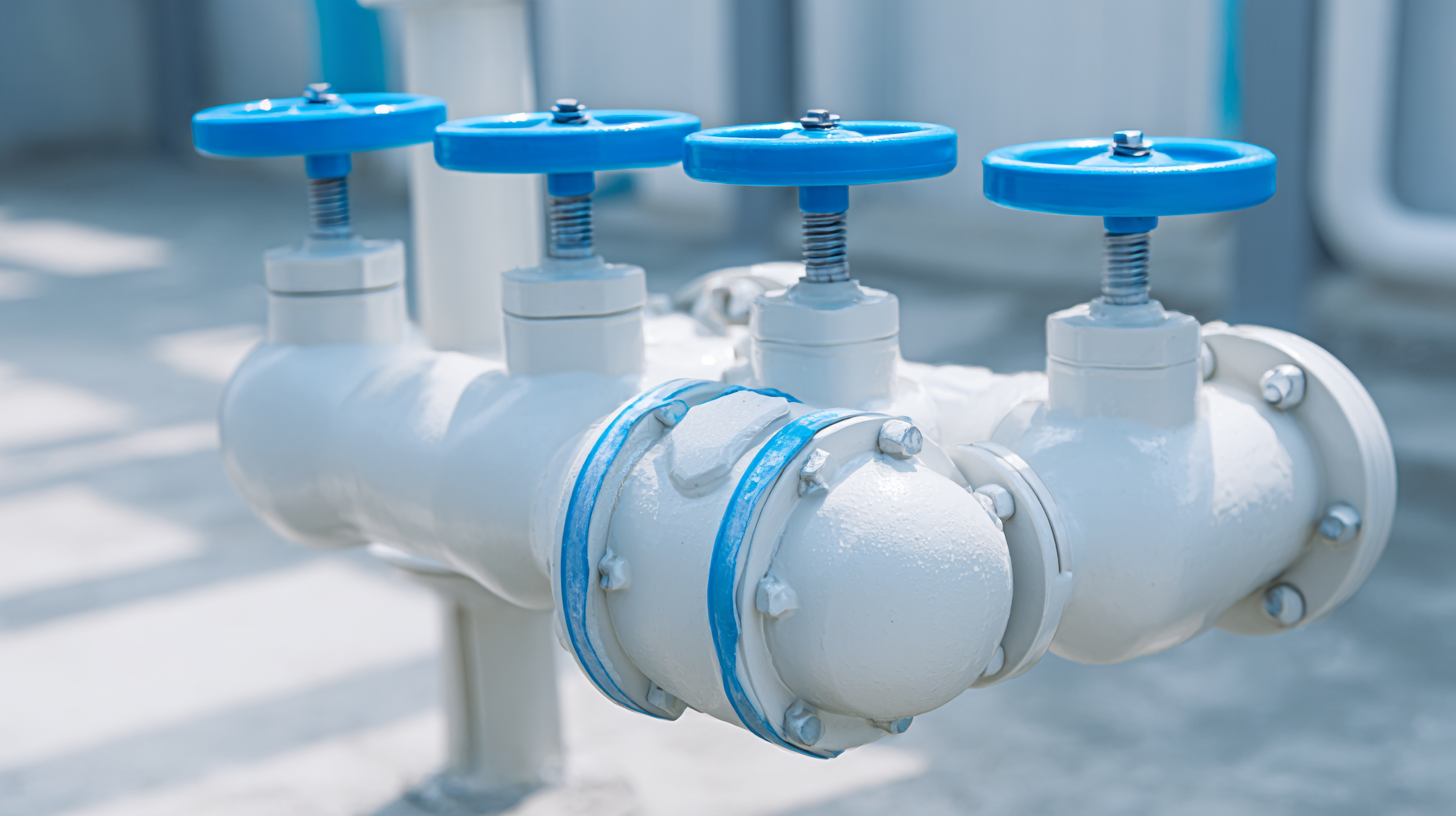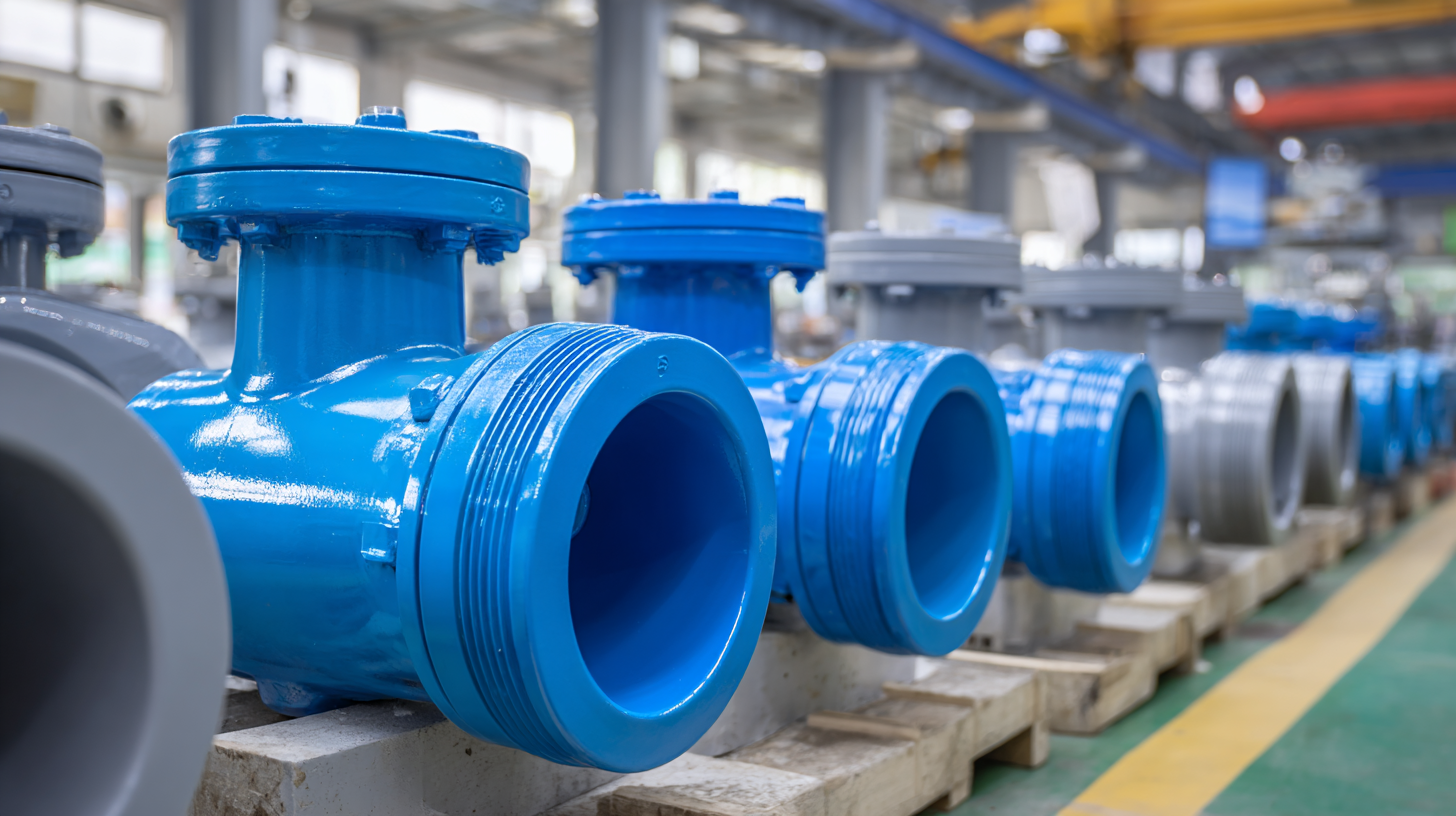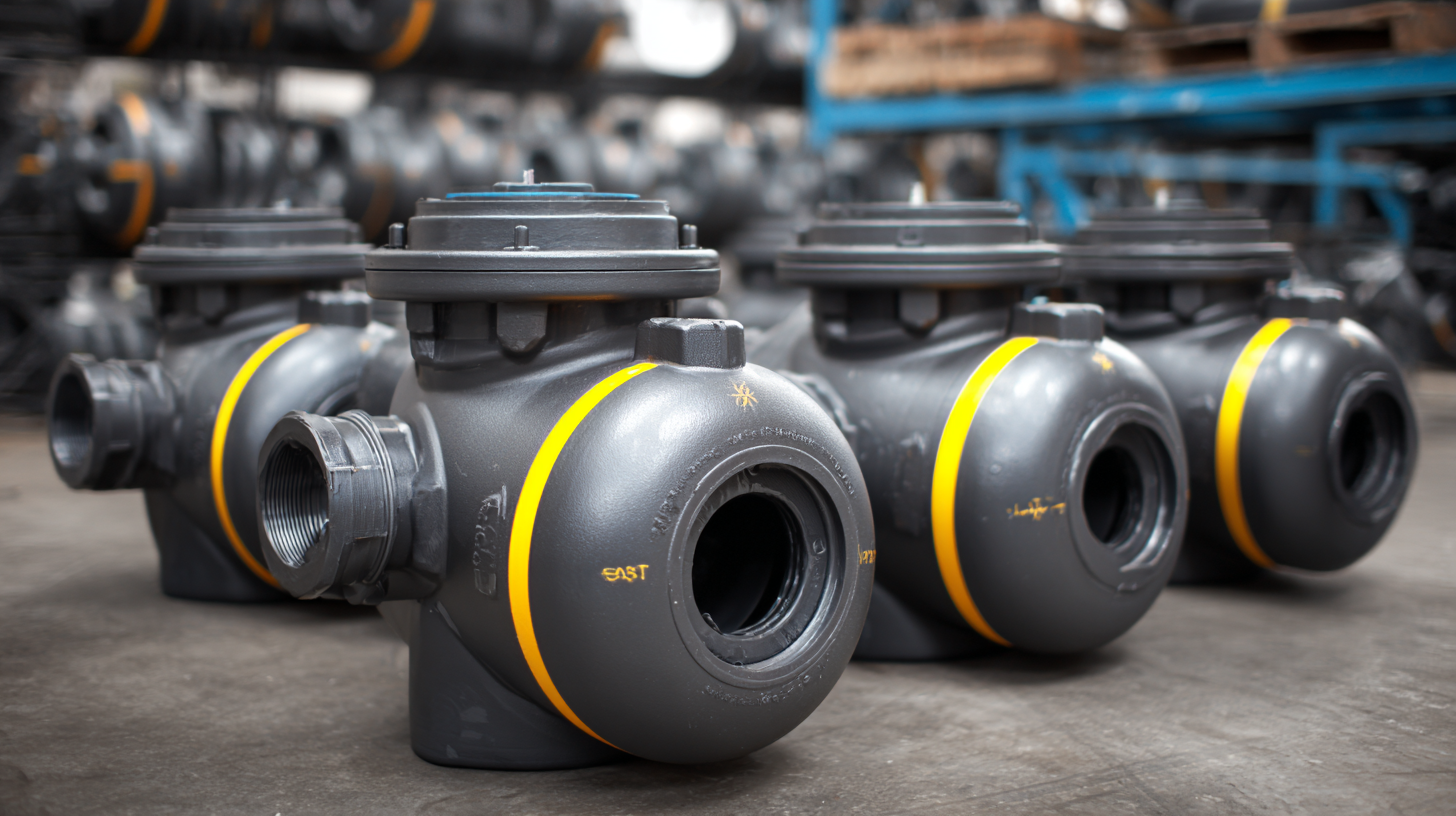What Makes the Best PVC Ball Valve Ideal for Your Business Needs
In the ever-evolving world of industrial applications, the selection of the right components can significantly impact efficiency and operational costs. Among these components, the PVC ball valve stands out as a crucial element in fluid management systems, favored for its durability, resistance to corrosion, and cost-effectiveness. According to a recent market analysis by ResearchAndMarkets, the global PVC valve market is projected to grow at a CAGR of 5.4% through 2028, emphasizing the increasing reliance on PVC ball valves across various industries, including chemical processing and water treatment. Understanding what makes the best PVC ball valve ideal for your business needs involves evaluating factors such as pressure ratings, chemical compatibility, and valve design—each playing a pivotal role in ensuring optimal functionality and longevity. As we delve into this topic, we will explore the essential features and considerations that can guide your selection process and enhance your operational efficiency.

Key Industry Standards for PVC Ball Valves You Should Know
When selecting the best PVC ball valves for your business needs, understanding the key industry standards is crucial. PVC ball valves are governed by several important specifications, including ASTM D2466 and ASTM D1784, which outline the material properties and performance criteria necessary for reliable operation. According to industry reports, using valves that comply with these standards can significantly improve the longevity and efficiency of systems, leading to a reduction in maintenance costs by up to 30%.
Tip: Always verify that your supplier provides documentation for compliance with relevant standards. This ensures that your valves are not only safe but also optimized for performance in your specific application.
Moreover, consider the pressure ratings and temperature tolerances specified by ANSI/ASME B16.34. Selecting a valve that falls within these guidelines can prevent leaks and failures, which are common issues in operational systems. Recent statistics indicate that improper valve selection can lead to operational downtimes, costing businesses over 20% of their potential output.
Tip: Perform a thorough assessment of your system’s requirements before purchasing PVC ball valves. Engaging with a knowledgeable supplier can help tailor your selection to both current and future needs, ensuring a sustainable investment.
Essential Features of PVC Ball Valves That Meet Business Demands
When selecting the ideal PVC ball valve for your business needs, it's crucial to focus on features that align with your operational requirements. A report from the Global Valve Market suggests that PVC ball valves have gained significant traction in industries such as chemical processing and water treatment due to their durability and resistance to corrosion. Key features like a full-port design ensure minimal pressure drop and maximum flow capacity, which are essential for maintaining operational efficiency in demanding environments.
Another critical aspect to consider is the valve's temperature and pressure ratings. High-quality PVC ball valves can typically withstand temperatures up to 140°F and pressures reaching 150 psi, making them suitable for various applications. According to a study by Research and Markets, the demand for lightweight, reliable plastic valves is projected to grow by over 5% annually in sectors such as agriculture and HVAC systems. Furthermore, easy installation and maintenance are essential characteristics that facilitate cost-effective operations, ensuring that businesses can achieve performance goals without excessive downtime.

Top Reasons to Choose High-Quality PVC Ball Valves for Efficient Operations
When it comes to maintaining efficient operations in any business, selecting the right equipment is paramount. High-quality PVC ball valves offer several advantages that make them an ideal choice for various applications. First and foremost, their superior corrosion resistance allows them to perform reliably in environments where other materials would fail. This characteristic is particularly important in industries dealing with chemicals or aggressive fluids, ensuring long-lasting durability and minimizing the need for frequent replacements.
Another compelling reason to choose PVC ball valves is their ease of installation and operation. These valves typically feature a lightweight design, which enables quick and straightforward installation without requiring specialized tools. Additionally, their smooth operation reduces the effort needed for manual control, leading to faster response times and improved workflow. By incorporating high-quality PVC ball valves into your operations, you can enhance productivity and reduce downtime, ultimately benefiting your bottom line and allowing your business to thrive in a competitive market.
Comparative Analysis: PVC Ball Valves vs. Alternative Valve Materials
When it comes to selecting the right valve for industrial applications, the choice between PVC ball valves and alternatives such as metal or rubber valves is crucial. PVC ball valves are renowned for their lightweight nature, corrosion resistance, and excellent sealing properties, making them ideal for water and chemical transportation. These characteristics provide durability in harsh environments, outpacing traditional metal valves that may succumb to rust and corrosion over time, thus increasing maintenance costs.
On the other hand, while alternatives like stainless steel valves offer superior temperature resistance and structural strength, they often come with a higher price tag and may not be necessary for less demanding applications. Rubber valves, although flexible, can wear down quickly under mechanical stress and are generally not suitable for high-pressure environments. PVC ball valves strike a balance of affordability and performance, making them a practical choice for various industries. Ultimately, understanding the specific needs of your business, including fluid compatibility and operating conditions, will guide the optimal valve material choice for your operations.
Understanding Compliance and Safety Regulations for PVC Ball Valves in Industry
When it comes to industrial applications, compliance and safety regulations for PVC ball valves are of utmost importance. These components play a crucial role in ensuring the smooth and efficient operation of various systems while adhering to strict regulatory standards. Understanding the specific compliance requirements such as ASTM and ASME guidelines is essential for businesses aiming to mitigate risks associated with valve failures and ensure the safety of their operations. Ensuring that PVC ball valves meet these standards not only protects personnel but also secures the integrity of the entire system.

Additionally, keeping abreast of industry trends, such as the growing demand for sustainable and reliable materials, is vital. As regulations evolve, so too must the materials used in manufacturing PVC ball valves. Companies that prioritize compliance with safety standards are likely to gain a competitive edge, significantly impacting their reputation in the market. Continuous investment in compliant technologies and innovative designs will not only help businesses meet current regulations but also prepare them for future challenges in the ever-changing industrial landscape.
